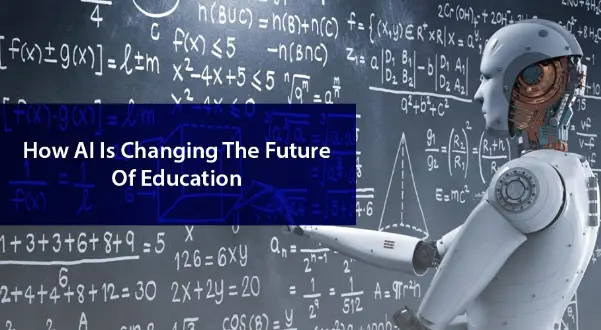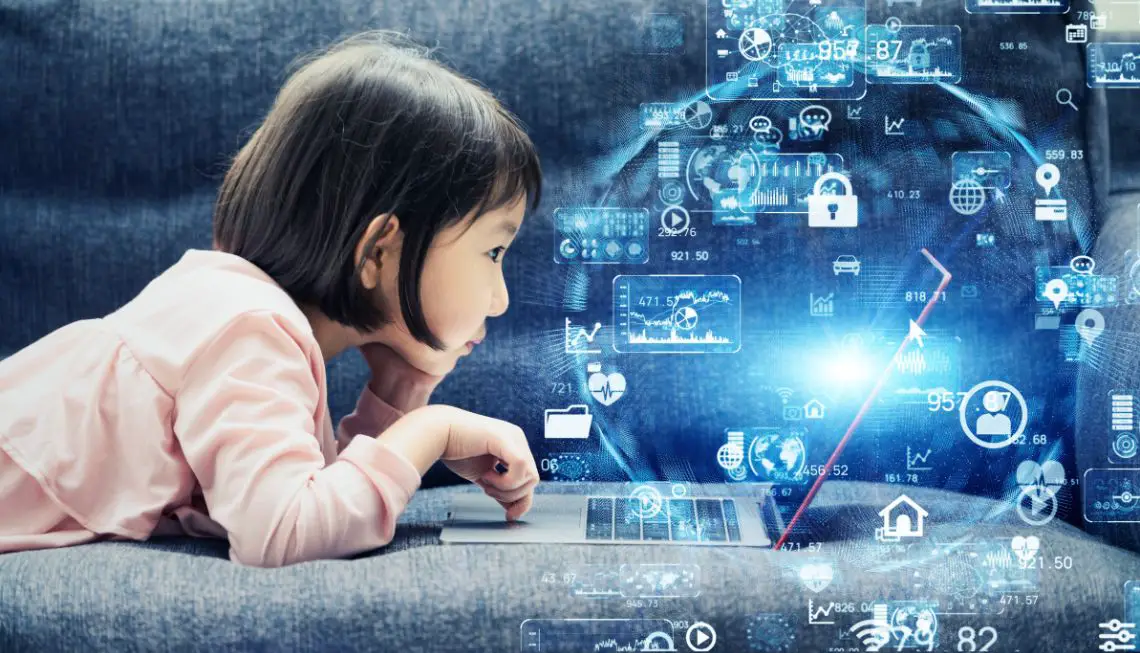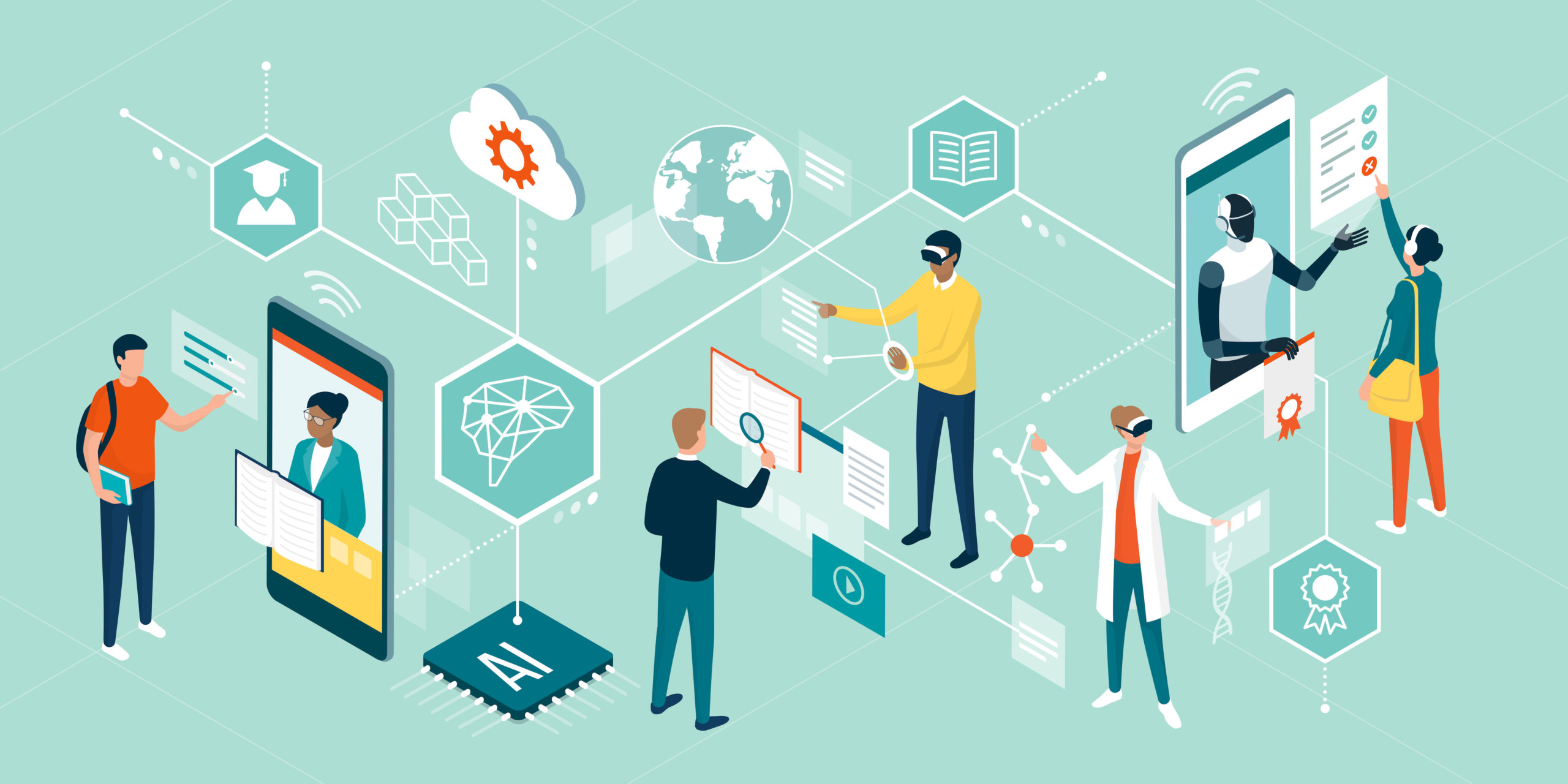The Future of AI in Education: Beyond Personalized Learning

Artificial intelligence (AI) is rapidly transforming the world around us, and education is no exception. AI-powered tools and technologies are already being deployed in classrooms to improve student learning outcomes, and the future of AI in education holds even greater promise.

Beyond Personalized Learning

One of the most significant potentials of AI in education is its ability to personalize learning experiences for each student. AI algorithms can track student progress, identify areas where they need additional support, and deliver tailored instruction. This can help all students achieve their full potential, regardless of their background or learning style.
However, the future of AI in education goes far beyond personalized learning. AI can be used to achieve a wide range of other educational goals, such as:
1. Automating administrative tasks: AI can take over many of the administrative tasks that teachers and administrators are currently responsible for, freeing up their time to focus on teaching and learning. For example, AI can be used to grade papers, schedule classes, and track student attendance.
2. Providing real-time feedback: AI can provide students with real-time feedback on their work, helping them to identify errors and make improvements. This can be especially helpful for students who are struggling or who need additional support.
3. Creating immersive learning experiences: AI can be used to create immersive learning experiences that engage students and make learning more fun. For example, AI-powered virtual reality (VR) and augmented reality (AR) tools can be used to create interactive simulations and games that allow students to explore new concepts in a more hands-on way.
4. Helping students develop critical thinking skills: AI can be used to help students develop critical thinking skills by posing challenging questions and encouraging them to think for themselves. AI can also be used to provide students with feedback on their critical thinking skills, helping them to identify areas where they need to improve.
5. Preparing students for the future workforce: AI is already having a major impact on the workforce, and this trend is only going to continue in the future. AI can be used to prepare students for the future workforce by teaching them the skills they need to succeed in an AI-driven economy. These skills include coding, data analysis, and machine learning.
The future of AI in education is bright. AI has the potential to revolutionize the way we learn and teach, and to give all students the opportunity to succeed. As AI continues to develop, we can expect to see even more innovative and groundbreaking uses for AI in education. heading” conservatives’.”conservatives’.”conservatives’.”conservatives’.”conservatives’.”conservatives’.”conservatives.”‘: 50 pounds of conservatives: Insert topic. Describe topic. Insert topic. Dot points containing topic information. Insert topic. 50 pounds of conservatives: Insert topic. Describe topic. Insert topic. Dot points containing topic information. Insert topic. 50 prefixes of conservatives: Cite topic. Describe topic. Insert topic. Dot points containing topic information. Insert topic. 50 prefixes of conservatives: Cite topic. Describe topic. Insert topic. Dot points containing topic information.

This article makes many promises about the potential of AI in education. However, it is important to remain skeptical about such claims. AI is still a relatively new technology, and there are many challenges that need to be overcome before it can be widely used in the classroom. For example, AI systems can be biased, and they may not be able to handle the complexities of real-world teaching situations. Additionally, the cost of developing and deploying AI systems can be prohibitive for many schools. It is important to keep these limitations in mind when considering the future of AI in education.
I am very excited about the potential of AI in education. I believe that AI can help to personalize learning, make education more accessible, and improve student engagement. For example, AI can be used to create personalized learning plans for each student, based on their individual needs and learning styles. AI can also be used to create virtual tutors that can provide students with one-on-one support. Additionally, AI can be used to develop engaging and interactive learning experiences that can help to keep students motivated.
The article does a good job of highlighting the potential benefits of AI in education. However, it is important to also consider the potential risks and challenges associated with the use of AI in the classroom. For example, it is important to ensure that AI systems are not biased, and that they are able to handle the complexities of real-world teaching situations. Additionally, it is important to consider the ethical implications of using AI to track and monitor student data.
I am curious to learn more about the specific ways that AI can be used in the classroom. For example, can AI be used to help students with disabilities? Can AI be used to create more engaging and interactive learning experiences? I am also interested to learn more about the challenges that need to be overcome before AI can be widely used in the classroom.
I am not convinced that AI will have a major impact on education. I believe that teachers will always be the most important factor in student learning. AI can be a useful tool, but it cannot replace the human interaction that is essential for effective teaching.
I am hopeful that AI will be able to help us to overcome some of the challenges that we face in education today. For example, I believe that AI can help us to personalize learning, make education more accessible, and improve student engagement. I am also excited about the potential of AI to help us to develop new and innovative teaching methods.
The article is full of hype and unrealistic promises. AI is not a magic bullet that will solve all of the problems in education. In fact, I believe that AI could actually make some of the problems worse. For example, AI could be used to create even more standardized and impersonal learning experiences that stifle creativity and critical thinking.
I am very excited about the potential of AI to transform education. I believe that AI can help us to create more personalized and engaging learning experiences that meet the needs of all students. I am also hopeful that AI will help us to develop new teaching methods that are more effective and efficient.
I am concerned about the use of AI in education. I am not sure how AI can be used to create personalized learning experiences for each student. I am also worried about the potential for AI to be used to track and monitor students. I believe that it is important to proceed with caution when implementing AI in the classroom.
I am very excited to see how AI will be used to transform education. I believe that AI has the potential to revolutionize the way that we learn and teach. I am particularly interested in the potential of AI to personalize learning and to make education more accessible to all students.
The article does a good job of highlighting the potential benefits and challenges of AI in education. However, I believe that it is important to also consider the ethical implications of using AI in the classroom. For example, it is important to ensure that AI systems are not biased and that they respect the privacy of students.
I am curious to learn more about how AI can be used to support students with disabilities. I am also interested to learn more about the potential of AI to help teachers to develop new and innovative teaching methods. I believe that AI has the potential to be a valuable tool for educators and students alike.
I am not sure how AI can be used to personalize learning for each student. I am also worried about the potential for AI to be used to track and monitor students. I believe that it is important to proceed with caution when implementing AI in the classroom.
I am very excited about the potential of AI to transform education. I believe that AI has the potential to revolutionize the way that we learn and teach. I am particularly interested in the potential of AI to make education more accessible to all students.
I am concerned about the use of AI in education. I am not sure how AI can be used to create personalized learning experiences for each student. I am also worried about the potential for AI to be used to track and monitor students. I believe that it is important to proceed with caution when implementing AI in the classroom.